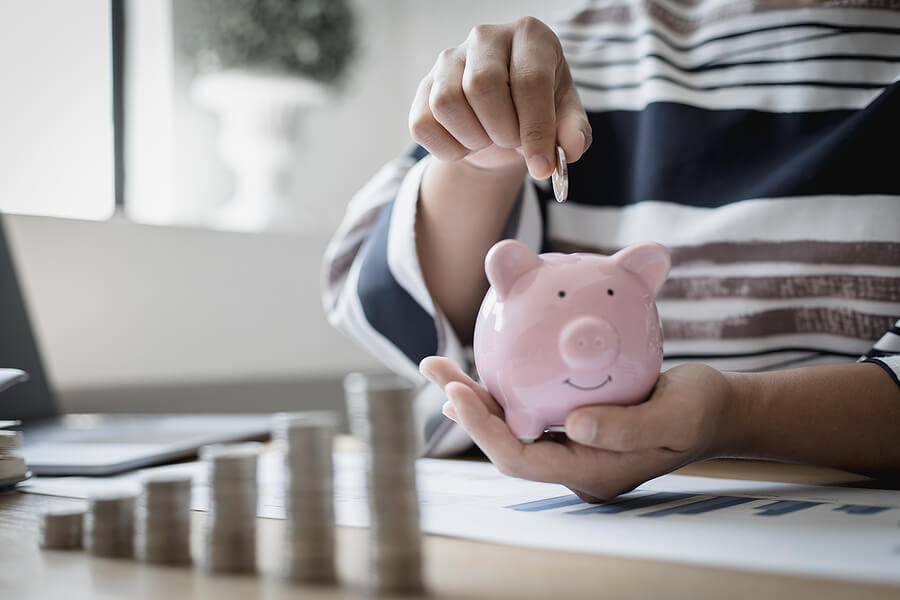Whether you’re planning to buy a house in the next five or 15 years, getting on the property ladder involves some forward planning.
The thought of saving for first time home buyers can be a daunting prospect. From deposits and mortgage lenders to surveyors, there are many costs to consider when buying your first home.
This guide will unpack everything you need to know about saving for a house and getting on the property ladder as a young professional.
Cost of buying a house
The cost of buying a home varies depending on location.
In the Leeds area, the average property price was around £263K from December 2020 to November 2021. This was cheaper than the average price of a home in England and Wales, which averaged around £344K.
The more expensive the property, the more your deposit will be. You usually need a deposit of at least 5% of the home’s value, though most buyers prefer to pay higher to have a more favourable mortgage.
The average deposit for a first time buyer in the UK is around 15%. This means you will have smaller monthly mortgage payments and a lower interest rate.
How much to save for a house

How much you need to save for a house will not only depend on the deposit, but also on any other fees that come with buying a home.
As a first time buyer, you will not need to pay Stamp Duty if you are buying a residential property worth less than £300,000.
There will, however, be some other costs to consider.
Before making you an offer, a mortgage lender will assess the value of the property and determine how much they are prepared to lend. This is known as a valuation fee and can cost between £150-£1,500 based on the value of the home. Depending on what type of mortgage you get, you may not have to pay for this.
It’s important to have the home checked by a property surveyor before you purchase it to check for any repairs or maintenance that may be needed. It is recommended that you opt for a full structural survey, usually starting at around £600. While this may cost more than a basic home condition survey (around £250), it could save you money on unexpected repairs in the long run.
A solicitor or licensed conveyancer is usually required when you are buying a home. These fees vary, but you will also need to factor in VAT at 20%. They will carry out all the legal work of your purchase and, for an extra fee, can also determine whether there are any local planning issues.
Smaller costs to consider are electronic transfer fees (when moving the money from lender to solicitor) and removal costs if you are vacating a rented property with your own furniture and items.
Before you begin repaying your mortgage, there may also be additional fees that are recommended you pay upfront. These include a booking fee, arrangement fee, and a mortgage valuation fee, the cost of which will vary from lender to lender.
The best way to determine how much to save for a house is to do your research. Make enquiries beforehand – an estimate (if not an exact cost) can usually be given for various local services. Set your budget way in advance too so you can work out how much of a deposit you need to save.
How to save for a house

There are several money-saving strategies you can adopt when saving for a house. Before you start, however, make sure to set a clear (and realistic) budget and goal. It will make practicing those changes much easier and ensure you stay on track when saving for your first home.
Budgeting
If you don’t already, start budgeting. Keep track of all your outgoings so you can see if there is any room for money to be saved – meals out, clothes shopping, etc. There are hundreds of budgeting apps to choose from. Some bank cards even come with the option to track your expenses, automatically move money into a savings account, and will alert you when a budget is close to being reached.
Cut down on bad habits
Cutting out a bad habit also comes into this – perhaps your budgeting has highlighted that you spend a lot on takeaways? Delete your takeaway apps, or limit yourself to special occasions only. If impulse buying is your vice, unsubscribe from marketing emails and remove all shopping apps.
Ask for a raise
You may also want to consider asking for raise at work. Your upcoming performance review may be a perfect time, where you can prove yourself worthy of a promotion. If this isn’t an option, perhaps it is time to start searching for alternative employment or taking on additional freelance work if you can.
How to save for a house while renting
Saving for a house while renting may take slightly longer, but there are ways to speed up the process.
You can easily adopt the above tips and recommendations into your lifestyle, pinching the pennies where necessary.
While you are renting, consider downsizing to a less expensive property. It will only be for a short period and will save tons of money in the process.
If your work and lifestyle allow, moving to a cheaper area is also an option. You may even find that you are able to rent the same size property for less.
Tips for first time home buyers
- Keep an eye on your credit score – it will greatly affect your chances of getting a good mortgage.
- Don’t be afraid to ask for help – whether in the form of advice or monetary assistance, most family members will be happy to help if they can. Some mortgage lenders also take parents’ savings into account for your application, but the money still remains with them.
- Start saving early – even if you’re still unsure whether buying a home is possible for you right now, saving prematurely is never a bad thing.



